Nurse Olaoluwa Olabode is the unit chairman, National Association of Nigeria Nurses And Midwives, (NANNM) Federal Neuropsychiatric Hospital, Aro, Ogun State, Nigeria, as well as, the Zonal President, Fellowship Of Christian Nurses, South West Zone. In this interview with Fellow Nurses Africa, he discussed issues around nursing politics, the upcoming NANNM National elections, the recent challenges facing nursing as a profession, non involvement of university nursing lecturers and professors in NANNM politics and the future of nursing . Enjoy….  FNA: Good evening Mr Chairman, can we meet you? Nrs. Olabode: My name is Olaoluwa Oluwatosin Olabode, I currently serve as the unit chairman, NANNM, FNPH Aro. FNA: It’s a pleasure having you on this segment sir. To start with, do you mind telling us a brief history of NANNM? Nrs. Olabode: Well, what we call NANNM today was in fragments in the past before they came together, we had different organizations calling themselves representatives of Nurses. In UCH for example, there were different bodies with diverse interests. We had those who trained in Nigeria, those who trained overseas, (UK trained nurses), and when issues came up, they found it difficult to speak with one voice. After many years, they began to realize this act is putting them at a disadvantage. They were being short changed by the government of the day due to their inability to fight a common course. After awhile, some people started making moves to come together and represent a single interest, including those in the academics. The driving force then was an award they couldn’t really enjoy because of the different interest groups. Among these prominent people were Kabiesi Adelani Olabode and late Nurse Adelowo, who championed the course. Another interesting fact is the inclusion of Midwives. You will agree with me that all over the world, ICN and ICM stands alone but to bring unity to Nigerian nursing, that is why midwives were also included and that is the genesis of what we have today as National Association of Nigeria Nurses And Midwives ( NANNM) and the first general secretary of the association was Apostle Moses Adelani Olabode. FNA: Thank you very much sir, from all you’ve said, it is clear that the main target of NANNM coming together was to unify all categories of nurses, can we ask sir if NANNM has been able to achieve this? Nrs. Olabode: NANNM has not been able to achieve this because of tribal, religion, and personal selfish interests amongst others. For example, if a Hausa person brings up an issue, another person from Yoruba might try to pull it down because it’s not coming from his tribe. This is one of the issues causing the divisions. Also, NANNM had issues with those in the Federal Health Institutions because they believe their interests were not represented. Same goes to UGONSA and those in the academics (Nursing lecturers and professors) so in all, the different interests and expectations amongst us has not really allowed NANNM to achieve the expected unity. FNA: what has NANNM done or currently doing to ensure these divisions are brought to an end? Nrs Olabode: The outgoing National President, Com. Alani Adeniji has tried his part to unify everybody together, and this is why Federal Health Institutions are back to being part of NANNM today, but I’m of the opinion this is on the surface. Underground, there are still issues that needs to be resolved. Overall, I want to say NANNM is doing her best but I think it’s not enough. At the moment, we can see that UGONSA’s public outcry and constant disagreements with NANNM has reduced. Another factor has to do with our lecturers and professors at the academic areas. Many of them still have unresolved issues with NANNM today and still don’t have that believe in NANNM. On the part of NANNM, I believe we’re doing our best to make sure they’re part of us fully. These people are being invited to NANNM programmes to give keynote addresses and the likes but to me, the commitment and the burning desires on the part of these scholars to effect changes in NANNM is not enough. We’ve seen and heard professors in other fields that come to challenge policies and address issues of public interest, but in nursing, nothing like that has ever happened and that is why many people still don’t know that a nurse can be a professor till date. Many of them are working in isolation.
FNA: Good evening Mr Chairman, can we meet you? Nrs. Olabode: My name is Olaoluwa Oluwatosin Olabode, I currently serve as the unit chairman, NANNM, FNPH Aro. FNA: It’s a pleasure having you on this segment sir. To start with, do you mind telling us a brief history of NANNM? Nrs. Olabode: Well, what we call NANNM today was in fragments in the past before they came together, we had different organizations calling themselves representatives of Nurses. In UCH for example, there were different bodies with diverse interests. We had those who trained in Nigeria, those who trained overseas, (UK trained nurses), and when issues came up, they found it difficult to speak with one voice. After many years, they began to realize this act is putting them at a disadvantage. They were being short changed by the government of the day due to their inability to fight a common course. After awhile, some people started making moves to come together and represent a single interest, including those in the academics. The driving force then was an award they couldn’t really enjoy because of the different interest groups. Among these prominent people were Kabiesi Adelani Olabode and late Nurse Adelowo, who championed the course. Another interesting fact is the inclusion of Midwives. You will agree with me that all over the world, ICN and ICM stands alone but to bring unity to Nigerian nursing, that is why midwives were also included and that is the genesis of what we have today as National Association of Nigeria Nurses And Midwives ( NANNM) and the first general secretary of the association was Apostle Moses Adelani Olabode. FNA: Thank you very much sir, from all you’ve said, it is clear that the main target of NANNM coming together was to unify all categories of nurses, can we ask sir if NANNM has been able to achieve this? Nrs. Olabode: NANNM has not been able to achieve this because of tribal, religion, and personal selfish interests amongst others. For example, if a Hausa person brings up an issue, another person from Yoruba might try to pull it down because it’s not coming from his tribe. This is one of the issues causing the divisions. Also, NANNM had issues with those in the Federal Health Institutions because they believe their interests were not represented. Same goes to UGONSA and those in the academics (Nursing lecturers and professors) so in all, the different interests and expectations amongst us has not really allowed NANNM to achieve the expected unity. FNA: what has NANNM done or currently doing to ensure these divisions are brought to an end? Nrs Olabode: The outgoing National President, Com. Alani Adeniji has tried his part to unify everybody together, and this is why Federal Health Institutions are back to being part of NANNM today, but I’m of the opinion this is on the surface. Underground, there are still issues that needs to be resolved. Overall, I want to say NANNM is doing her best but I think it’s not enough. At the moment, we can see that UGONSA’s public outcry and constant disagreements with NANNM has reduced. Another factor has to do with our lecturers and professors at the academic areas. Many of them still have unresolved issues with NANNM today and still don’t have that believe in NANNM. On the part of NANNM, I believe we’re doing our best to make sure they’re part of us fully. These people are being invited to NANNM programmes to give keynote addresses and the likes but to me, the commitment and the burning desires on the part of these scholars to effect changes in NANNM is not enough. We’ve seen and heard professors in other fields that come to challenge policies and address issues of public interest, but in nursing, nothing like that has ever happened and that is why many people still don’t know that a nurse can be a professor till date. Many of them are working in isolation.  FNA: It is strange to note that nursing scholars and professors are not fully part of NANNM, Invariably, does it means they’re not paying NANNM dues? Nrs. Olabode: The point is that many of them don’t even believe in NANMM, is it not someone who believes in a union that will be paying dues to such union? Although, NANNM has a state administrative council, it is the duty of this administrative council to go to them and bring them to NANNM. For example, if they’re not interested in the NANNM politics and we don’t even go to them to make them see reasons why they should belong, you know something is wrong. Many of them prefer to be a part of ASUU and unfortunately, I’ve not seen a nurse lead ASUU till date. Above all, I still want to throw it to the state administrative council to open their hands to these people and go to them. And if they refuse to come, when issue arises, we will be able to say categorically that we came to you for membership but you didn’t give us audience. FNA cuts in: Is there no way NANNM and NMCN can Mandate them to be a part of NANNM? Nrs. Olabode: I want to commend you for this question, you know NANNM is a professional association cum trade union and in the constitution of our country, you have the right to association. You can’t force anybody who’s not ready, but I believe this is what NANNM can achieve in partnership with NMCN to ensure every Nurse is part of NANNM. Every Nurse renews license, if NANNM and NMCN can ensure that as these nurses are graduating from school, they should be inducted into both NMCN and NANNM. Let the NANNM and NMCN come up with an idea to ensure this and bring everyone together. FNA: Are those in the academics doing MCDPD, if no, how have they been renewing their licenses? Nrs. Olabode: I don’t think so, because they don’t believe in NANNM and they don’t belong there. I’m still of the opinion that there should be a law that cut across every nurse so that no one is regarded as a sacred cow. That’s what operates in other professions. Such that if you don’t do mandatory continuous program, you can’t renew your license. Although, in the past, MCPDP was designed for those in the clinicals, they believed those in the academics are still reading and teaching students and as such, they’re always updating their knowledge, so they don’t need MCPDP. Things have changed now, these people need to see reason why everybody should come together as a profession. FNA: This is another problem we just identified here that needs to be addressed. What exactly is NANNM and NMCN doing to ensure this ? Nrs. Olabode : There hasn’t been anything yet, the general secretary and president of NANNM are automatic members of NMCN board, so if they can throw it open, and make people realize that the only way to give credence to our union and profession is to make sure every nurse, including those in the academics are active members of NANNM. For instance, even if you don’t have the interest, by the time you’re there and they’re deducting your money every month, you will have no choice than to build that interest and ensure you’re a part of the solution. Same goes to UGONSA, if they know that the only way to renew a license is MCPDP and that they can’t do it without being a part of NANNM, they will be left with no option than being a part of NANNM. By this, we will be able to speak up in unity when issues facing the profession arise. FNA: Thank you sir for the mind-blowing discussions so far. There’s been agitations from nurses at home and in diaspora that the only way NANNM can be effective is to pull out of JOHESU, what’s your take on this?
FNA: It is strange to note that nursing scholars and professors are not fully part of NANNM, Invariably, does it means they’re not paying NANNM dues? Nrs. Olabode: The point is that many of them don’t even believe in NANMM, is it not someone who believes in a union that will be paying dues to such union? Although, NANNM has a state administrative council, it is the duty of this administrative council to go to them and bring them to NANNM. For example, if they’re not interested in the NANNM politics and we don’t even go to them to make them see reasons why they should belong, you know something is wrong. Many of them prefer to be a part of ASUU and unfortunately, I’ve not seen a nurse lead ASUU till date. Above all, I still want to throw it to the state administrative council to open their hands to these people and go to them. And if they refuse to come, when issue arises, we will be able to say categorically that we came to you for membership but you didn’t give us audience. FNA cuts in: Is there no way NANNM and NMCN can Mandate them to be a part of NANNM? Nrs. Olabode: I want to commend you for this question, you know NANNM is a professional association cum trade union and in the constitution of our country, you have the right to association. You can’t force anybody who’s not ready, but I believe this is what NANNM can achieve in partnership with NMCN to ensure every Nurse is part of NANNM. Every Nurse renews license, if NANNM and NMCN can ensure that as these nurses are graduating from school, they should be inducted into both NMCN and NANNM. Let the NANNM and NMCN come up with an idea to ensure this and bring everyone together. FNA: Are those in the academics doing MCDPD, if no, how have they been renewing their licenses? Nrs. Olabode: I don’t think so, because they don’t believe in NANNM and they don’t belong there. I’m still of the opinion that there should be a law that cut across every nurse so that no one is regarded as a sacred cow. That’s what operates in other professions. Such that if you don’t do mandatory continuous program, you can’t renew your license. Although, in the past, MCPDP was designed for those in the clinicals, they believed those in the academics are still reading and teaching students and as such, they’re always updating their knowledge, so they don’t need MCPDP. Things have changed now, these people need to see reason why everybody should come together as a profession. FNA: This is another problem we just identified here that needs to be addressed. What exactly is NANNM and NMCN doing to ensure this ? Nrs. Olabode : There hasn’t been anything yet, the general secretary and president of NANNM are automatic members of NMCN board, so if they can throw it open, and make people realize that the only way to give credence to our union and profession is to make sure every nurse, including those in the academics are active members of NANNM. For instance, even if you don’t have the interest, by the time you’re there and they’re deducting your money every month, you will have no choice than to build that interest and ensure you’re a part of the solution. Same goes to UGONSA, if they know that the only way to renew a license is MCPDP and that they can’t do it without being a part of NANNM, they will be left with no option than being a part of NANNM. By this, we will be able to speak up in unity when issues facing the profession arise. FNA: Thank you sir for the mind-blowing discussions so far. There’s been agitations from nurses at home and in diaspora that the only way NANNM can be effective is to pull out of JOHESU, what’s your take on this?  Nrs. Olabode: Well, I share in some of these sentiments, and I believe these agitations are genuine. JOHESU is a conglomeration of various unions, and this doesn’t prevent the member union from speaking on issues concerning their individual members but what we’re seeing in NANNM today is the opposite. Anytime we have JOHESU issue, NANNM should also be able to come out and speak on issues that concern their members only, just like other associations in JOHESU do, but this has never happened. When it comes to pulling out of JOHESU, it isn’t really viable because nurses don’t have guts to face certain things and I will give examples of last JOHESU strike whereby many nurses sabotaged the effort of the union by secretly going to work. We can’t compare ourselves with ASUU who can go on strike for as many years as possible and you won’t see saboteurs among them. In nursing, many of them were going to work and we were chasing them away from work. At a point, one of the MDs was pointing accusing fingers on us that ‘shebi’ we called for strike, if we know what we’re doing, do we need to be chasing them away from work? I laugh when people say we have the number, it is not only about number, but formidable members, nurses that can stand the test of time. Another reason is the female factor. Many of our female colleagues have medics as husbands, someone that will tell them that you better go to work or I send you packing out of my house. So, I believe if nurses can unite, gather courage and stop fidgeting when NANNM calls for strike, then we can go to the table and discuss whether it’s time to pull out or not. FNA: in a couple of months, the tenure of office for the present national executives will expire. What plans are on ground for the 2020 NANNM elections? Nrs. Olabode: Concerning the NANNM elections, let me start by saying we operate a form of zoning formula. Although, not in the constitution but that’s one of the internal arrangements. In unionism we have consensus, convention and we have constitutions because if these things are not put in place, some people will not even come near any elective positions talk less of smelling it. The 2020 elections is suppose to be zoned to the south if I’m correct because the present National president is from the south west and the previous was from the North, going by that there’s a high probability that the next National president is coming from the South. Although for now because of the COVID19 pandemic, there’s no serious plan on ground. Our attention for now is still on Flattening the curve. However, it seems I heard something about considering online elections but I seriously do not know how that’s going to work because NANMM elections operate by delegates, for instance in Lagos, they may just pick 5 delegates and those are the people that will represent the entire state, in fact a lot hospitals end up not having any representative. FNA: cuts in, wait sir! You mean in 2020, NANNM elections is still by delegates? Nrs. Olabode: That’s what is in the constitution sir. Personally, I’m of the opinion It should be by how much dues you pay because the implications now is that those paying NANNM dues doesn’t have a say because your future is in the hands of delegates who might be chosen by the NANNM chairman, definitely the chairman will choose his caucus, those in agreement with him. This is part of the problem in NANNM and many units and state chairmen are cool with it because whether they work or not, nobody is putting pressure on them. Although, the last constitution review tried to address it but some people stood against it for reasons best known to them. The case is still on anyway and I hope it will one day end well. FNA: Thank you Nrs. Olabode for your time, it’s been an interesting moment with you. We do hope you’re going to give us audience when next we call on you? Nrs. Olabode : Definitely! Thanks for having me
Nrs. Olabode: Well, I share in some of these sentiments, and I believe these agitations are genuine. JOHESU is a conglomeration of various unions, and this doesn’t prevent the member union from speaking on issues concerning their individual members but what we’re seeing in NANNM today is the opposite. Anytime we have JOHESU issue, NANNM should also be able to come out and speak on issues that concern their members only, just like other associations in JOHESU do, but this has never happened. When it comes to pulling out of JOHESU, it isn’t really viable because nurses don’t have guts to face certain things and I will give examples of last JOHESU strike whereby many nurses sabotaged the effort of the union by secretly going to work. We can’t compare ourselves with ASUU who can go on strike for as many years as possible and you won’t see saboteurs among them. In nursing, many of them were going to work and we were chasing them away from work. At a point, one of the MDs was pointing accusing fingers on us that ‘shebi’ we called for strike, if we know what we’re doing, do we need to be chasing them away from work? I laugh when people say we have the number, it is not only about number, but formidable members, nurses that can stand the test of time. Another reason is the female factor. Many of our female colleagues have medics as husbands, someone that will tell them that you better go to work or I send you packing out of my house. So, I believe if nurses can unite, gather courage and stop fidgeting when NANNM calls for strike, then we can go to the table and discuss whether it’s time to pull out or not. FNA: in a couple of months, the tenure of office for the present national executives will expire. What plans are on ground for the 2020 NANNM elections? Nrs. Olabode: Concerning the NANNM elections, let me start by saying we operate a form of zoning formula. Although, not in the constitution but that’s one of the internal arrangements. In unionism we have consensus, convention and we have constitutions because if these things are not put in place, some people will not even come near any elective positions talk less of smelling it. The 2020 elections is suppose to be zoned to the south if I’m correct because the present National president is from the south west and the previous was from the North, going by that there’s a high probability that the next National president is coming from the South. Although for now because of the COVID19 pandemic, there’s no serious plan on ground. Our attention for now is still on Flattening the curve. However, it seems I heard something about considering online elections but I seriously do not know how that’s going to work because NANMM elections operate by delegates, for instance in Lagos, they may just pick 5 delegates and those are the people that will represent the entire state, in fact a lot hospitals end up not having any representative. FNA: cuts in, wait sir! You mean in 2020, NANNM elections is still by delegates? Nrs. Olabode: That’s what is in the constitution sir. Personally, I’m of the opinion It should be by how much dues you pay because the implications now is that those paying NANNM dues doesn’t have a say because your future is in the hands of delegates who might be chosen by the NANNM chairman, definitely the chairman will choose his caucus, those in agreement with him. This is part of the problem in NANNM and many units and state chairmen are cool with it because whether they work or not, nobody is putting pressure on them. Although, the last constitution review tried to address it but some people stood against it for reasons best known to them. The case is still on anyway and I hope it will one day end well. FNA: Thank you Nrs. Olabode for your time, it’s been an interesting moment with you. We do hope you’re going to give us audience when next we call on you? Nrs. Olabode : Definitely! Thanks for having me

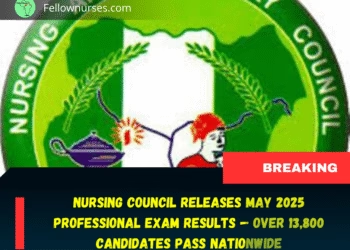
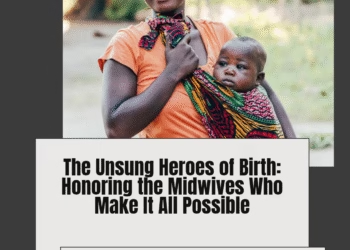
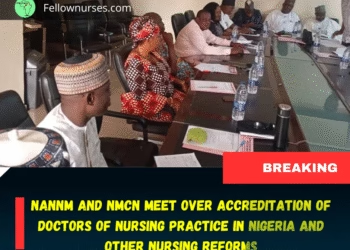
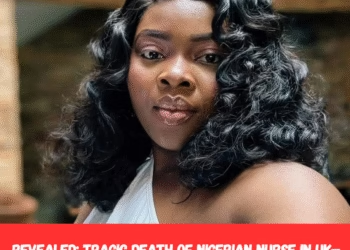
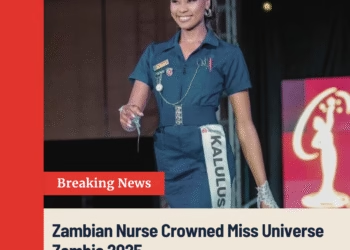
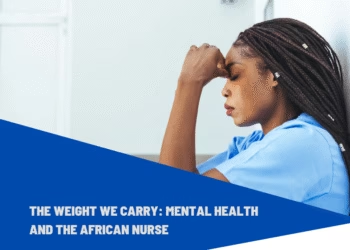
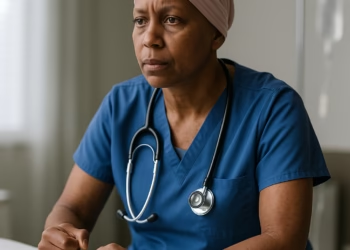
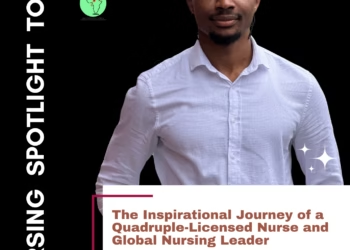




Nurses in the Universities, register and go through MCPDP to renew their licences